Joan Barton of Dirty Girl Construction in Los Angeles is a general contractor—yes, one of the few women in her field. She recently filled us in on Four Floor Finishes for Tight Budgets. Now that we’ve gotten to know her, she’s offering some frank tips to help the remodeling process go more smoothly. Here, five things your contractor would like to say to you, if only politeness didn’t prevent candor.
1. Stop watching reality TV.
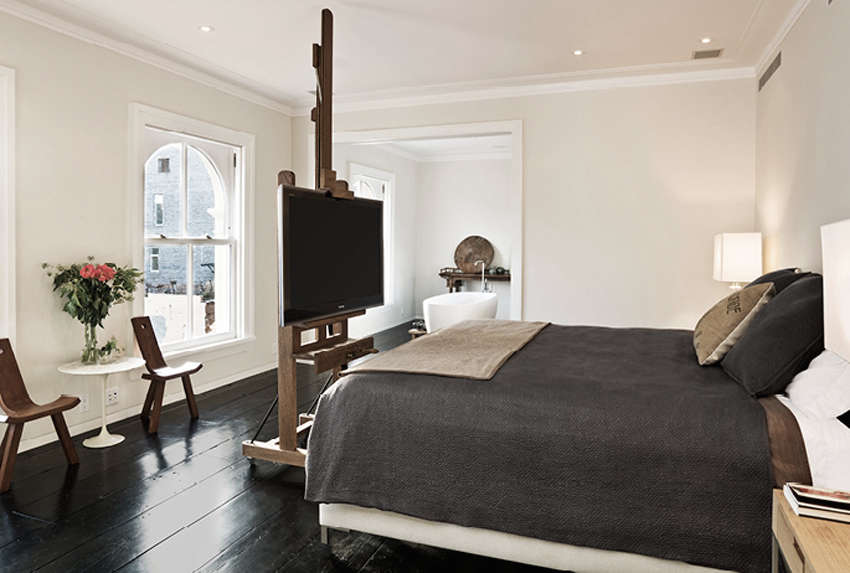
Above: Resist the urge to binge on reality TV shows documenting unrealistic remodeling scenarios. Photograph courtesy of AvroKo.
Reality TV is great entertainment. We all like to see the big reveal—the tears, the cheering, people being given the gift of a home. It makes for great television. But that’s all it is. Reality is markedly different: Construction and quality craftsmanship cost money and take time. It’s just not possible to build a $100,000 kitchen for $20,000, no matter how creative your contractor is, and it won’t happen in the blink of an eye because no one builds a custom home in seven days. Not even Superman.
2. We’re not open 24-7.
Above: Respect the clock. One of our favorites, the Arne Jacobsen City Hall Clock, is currently on sale at Steven Alan for $178 (down from $357).
There are certain businesses that are open day and night. Residential construction is not one of them. We’re excited about your project, as we know you are, but getting calls, texts, and email from a client after business hours is not always cool—just as it’s not OK for us to contact you at all hours of the night. Mutual respect of personal time is paramount for a healthy working relationship. So except for emergencies, communications should be handled during business hours. Our phones are on day and night in case someone truly needs us, but let’s wait until morning to discuss your backsplash.
3. Your Google-fu is not always helpful.

Above: The lure of the computer. Photograph by June Kim; see more at Office Visit: The Everlane Studio in San Francisco.
Definition: Google-fu 1. Skill in using search engines (especially Google) to quickly find useful information on the Internet. (Source: Wiktionary.)
People use their fu skills on sites such as WebMD to self-diagnose medical issues. Given enough semi-symptoms, those aches and pains can translate to an inoperable brain tumor—which is why your doctor has had enough of you. Likewise, your contractor would prefer that you didn’t Google-fu “how to cut stone” or “cost of wood flooring per square foot.” Most questions will be too broad to get an accurate answer, and most answers don’t account for things like custom materials and installations, location, application, design intention, and labor costs. You hired a contractor for expertise, so definitely turn to her or him for informed answers. And if we don’t know, we’ll use our own fu to figure it out.
4. Here, take this Valium.

Above: Seek serenity now. (For more of this space, see London’s Sleekest Spa, Courtesy of David Chipperfield.)
Building projects are stressful no matter how well things go during construction. Trusting someone with two of your precious possessions—your money and your home—creates very real anxiety for both you and your contractor. Clients who are in a constant state of freaking out can damage the builder-client partnership to the point where the contractor either tries to avoid you, or, worse, terminates the relationship. Of course, the road goes both ways: If you hire a contractor who yells or treats you like an idiot, don’t tolerate it. Take the time to find a contractor you like, trust, and with whom you can really communicate. That said, we all have bad days—nearly every one of my clients has had one (or two) in front of me, and I can recall times when I haven’t been my best self either. But those days are far outweighed by the laughter that is typically part of the project experience. Kindness almost always trumps all, and the building process is no different.
5. I booked you a room at the Ritz.
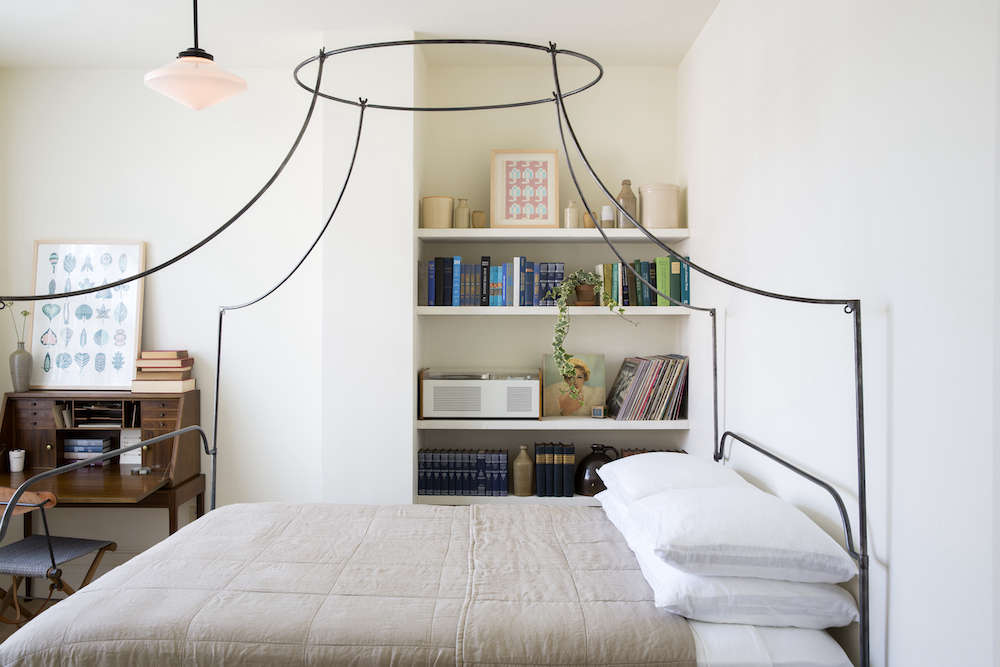
Above: Sometimes it’s best to flee the construction site and take a room at the inn (see Steal This Look: A Guest Room with Subdued Style).
Do you have clients who stand over you watching everything you do, asking for explanations in laymen’s terms, step by step, while letting unsupervised kids play in your work area? Probably not—unless you’re a contractor.
While clients are, of course, welcome in their own homes, certain times are better than others to see the work— and it’s not while it’s actually in progress. What’s best is to schedule a site meeting in which the project team (any combination of client, architect, designer, contractor) can convene to review what’s been accomplished and discuss project details. Having you, your kids, and your pets underfoot during construction can be time-consuming and dangerous; it also impacts the work schedule and hence the budget. Consider putting scheduled site meetings in your contract. Regardless, before dropping in, check with your contractor to make sure you’re not unnecessarily disrupting the workflow. And spend some time relaxing in your rental while we get your house ready for the big reveal.
Joan Barton is the hands-on owner of Dirty Girl Construction in LA. She’s also begun to design some of her projects and specializes in residential remodels. Take a look at her Four Favorite Affordable Floor Finishes.
For more remodeling and building tips, go to Ask the Expert.
Frequently asked questions
What are some things that contractors wish you knew but are too polite to tell you?
Some things that contractors wish you knew but are too polite to tell you include being upfront about your budget, having realistic expectations, being available for communication, understanding the importance of timing, and being prepared for unexpected costs.
Why is being upfront about your budget important?
Being upfront about your budget is important because it allows the contractor to determine what can be realistically accomplished within your budget and helps to avoid surprises or disappointments down the road.
What are realistic expectations to have when working with a contractor?
Realistic expectations to have when working with a contractor include understanding that timelines can be unpredictable due to unforeseen circumstances, being willing to compromise on some details to stay within your budget, and being prepared to wait for certain materials or permits.
Why is it important to be available for communication?
Being available for communication is important because it allows the contractor to keep you updated on the project’s progress and ask any necessary questions. This helps to ensure that the project stays on track and any issues can be addressed promptly.
How does timing impact a construction project?
Timing is crucial in a construction project because it can impact the cost, the quality of work, and the overall timeline. Being aware of the project’s timeline and any external factors that could impact it can help keep the project moving smoothly.
Should you expect unexpected costs when working with a contractor?
Yes, unexpected costs can arise during a construction project, even with the most thorough planning. Being prepared for unexpected costs can help to alleviate stress and avoid delaying the project.
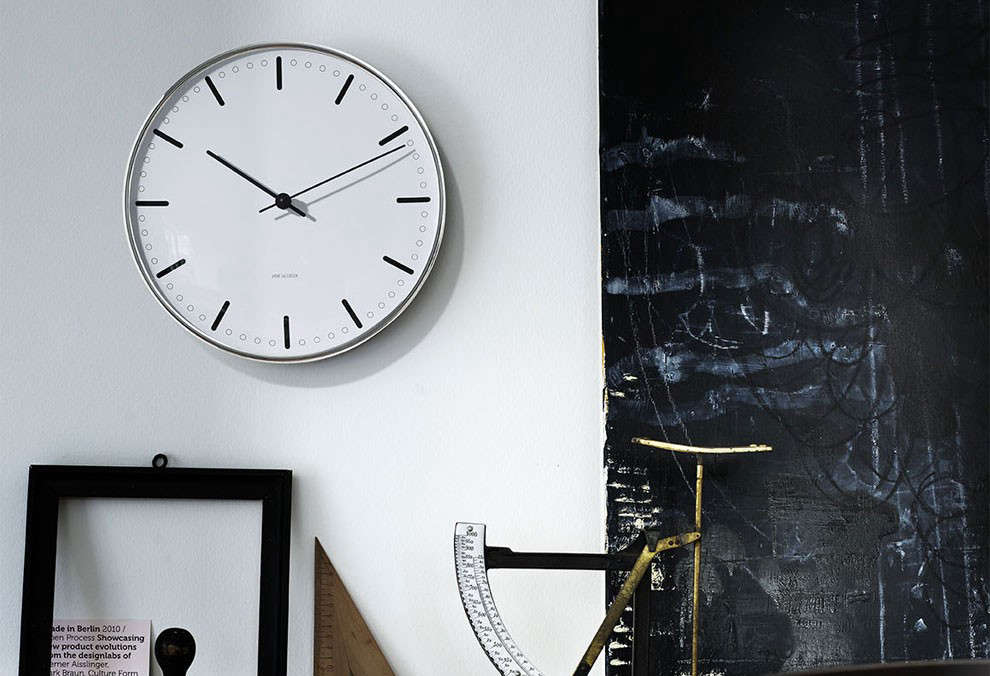

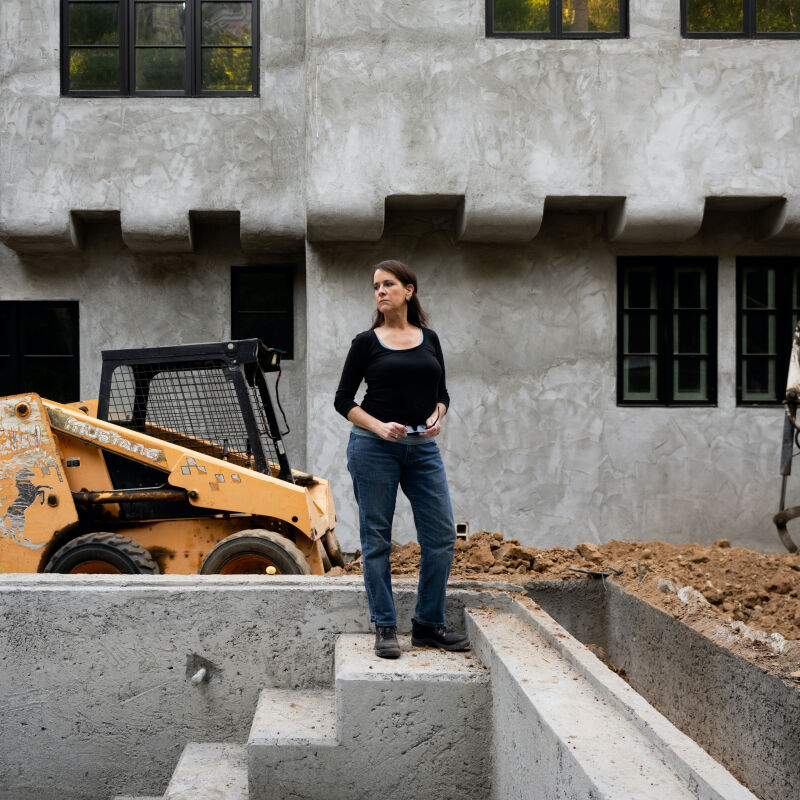
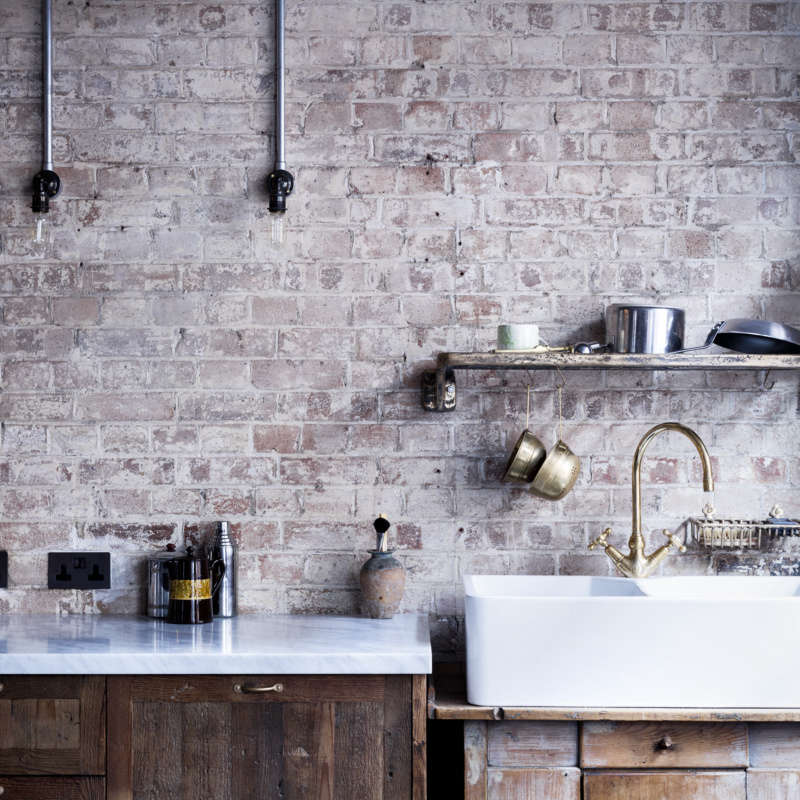



Have a Question or Comment About This Post?
Join the conversation